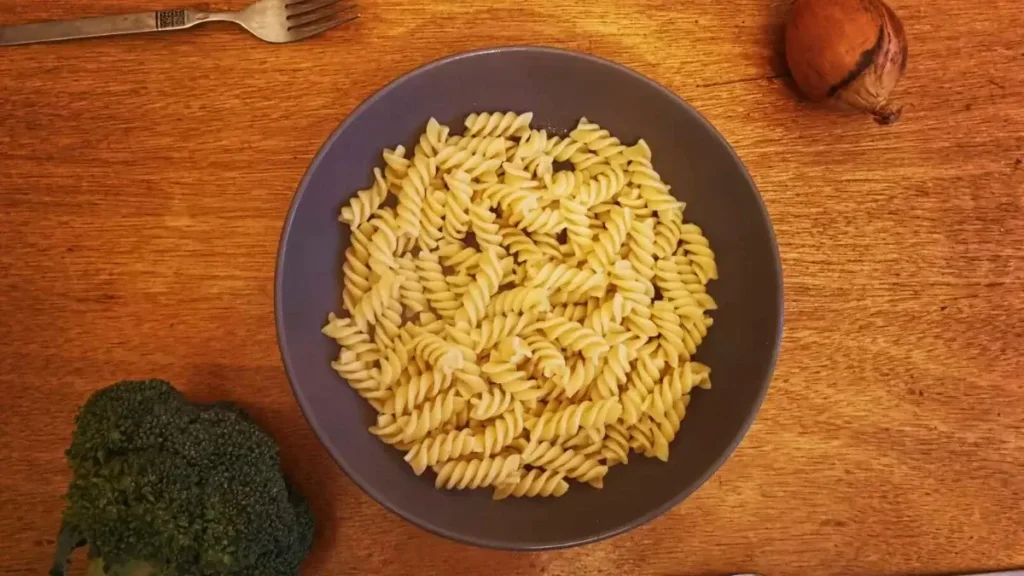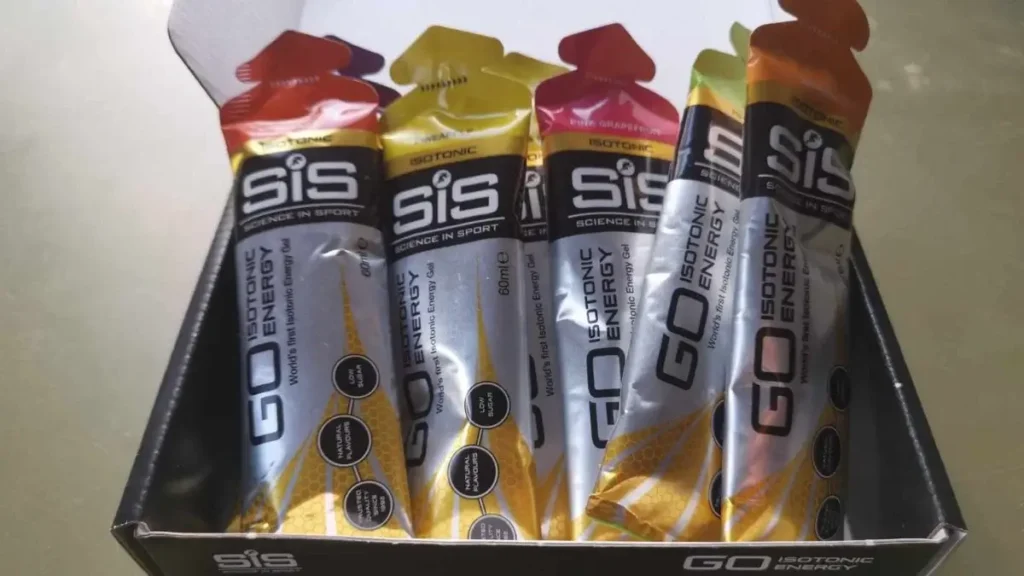You’ve done all your training and it’s time to run your victory lap, but you’re yet to work out what to eat the night before a half marathon.
Don’t do what I did, smash down a kebab and chips, with a side serving of meat feast pizza. Funnily enough, this didn’t serve me well and what followed the next day was a world of pain. Fueling properly is not only going to improve your performance and time, but it’s also going to make the whole experience a lot more fun.
In short, you want a light meal high in simple carbs with low protein and fiber like tomato pasta. Be careful not to fall into the trap lots of runners make and overdo it, eat too much, and feel groggy in the morning.
But the key is to start changing up your diet 72 hours before your half-marathon, let’s discuss how…
Carb Loading for a Half Marathon
Why does every runner you talk to go on and on about carb loading? and what is it? Here’s the science:
Carbohydrates are your body’s primary source of energy when you complete endurance activities. By eating lots of carbs, your body stores it as glycogen ready to be used for your race. The body can store about 90 minutes worth of glycogen before it runs out, so you want to make sure they are as topped up as much as possible to get you across the finish line.
But does it actually work? or is it a runner’s myth?
Studies have shown that carb loading is an effective nutrition strategy and can have a significant impact on endurance performance. It can also help to delay the onset of fatigue and so help you avoid hitting the dreaded wall which occurs when glycogen stores become depleted during prolonged exercise.
Timing is the key here, let’s go into the when, what, and how.
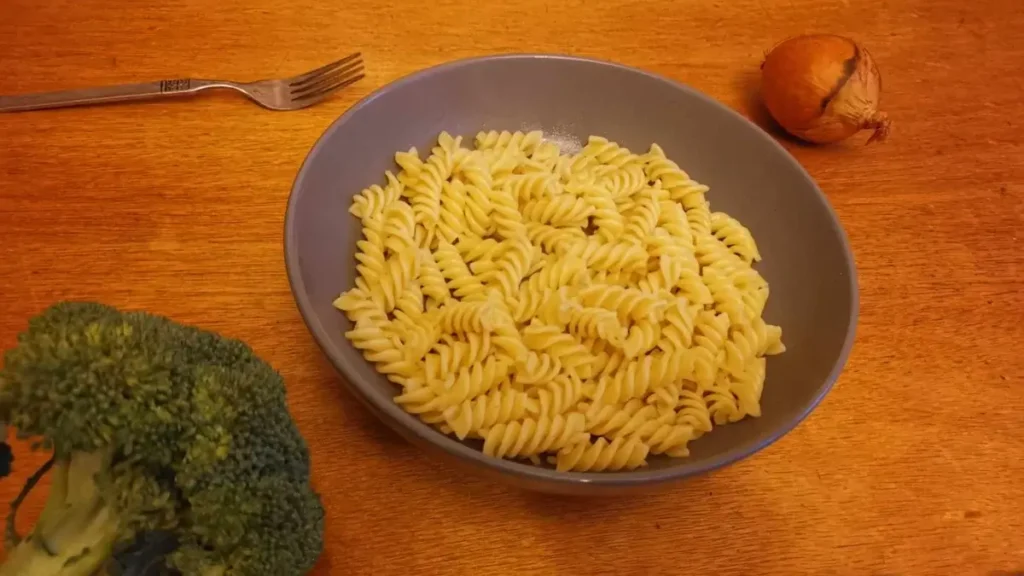

What to Eat 72 Hours Before a Half Marathon
It’s time to start carb loading. To do this you want to eat lots of ‘simple carbs’. Check the packet and look for foods that contain a high % of carbohydrates like rice and oats. Carbohydrates are made up of 3 components: fiber, starch, and sugar. Fiber and starch are complex carbs, and sugar is simple. Simple carbs are easier for the body to break down making digestion easier and your stomach smile.
A good way to think about it is switching dark carbs like brown rice to the light version like white rice as these foods generally contain less fiber (and who doesn’t love white bread?).
The other thing you need to do is to reduce the amount of protein and vegetables you are eating. These are great while you are training as they support recovery, but now your training is finished (and you’re hopefully in a good spot), you want to reduce them as they are more difficult to digest and don’t help with building up your glycogen stores.
Every 24 hours, you want to consume 10 grams of carbs for every kilogram you weigh, spread across the day. How you split them across meals comes down to personal preference. I struggle to eat larger amounts when I make up, so I usually opt for a smaller breakfast and a larger dinner. However, some people hate going to bed on a heavy stomach, so see what works for you.
It’s a good idea to pick foods your body is familiar with, here are some card-loading food ideas to get you going:
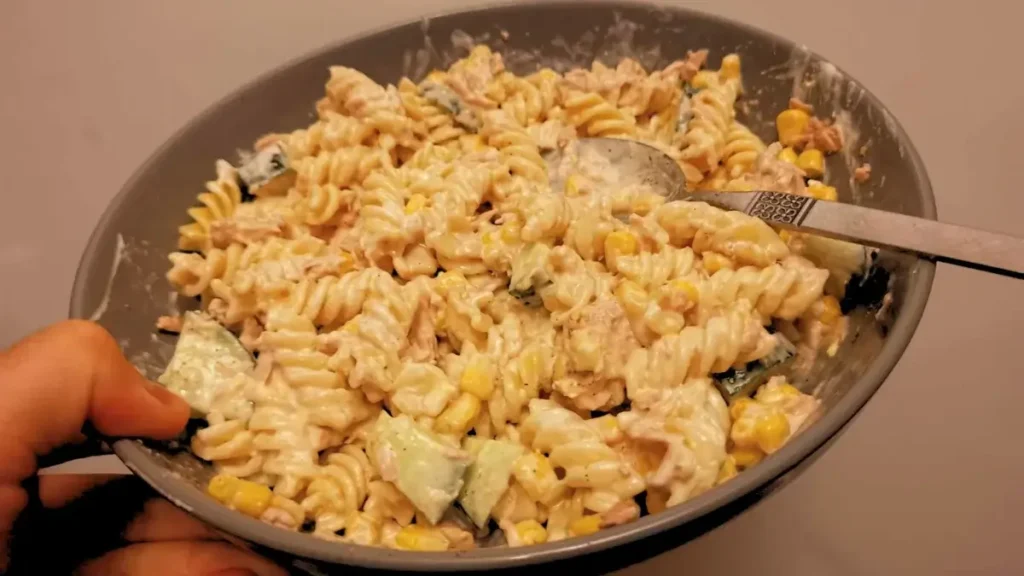

My Choice for What to Eat the Night Before a Half Marathon Meal
You’ve now finished your carb loading, so you want to tailor off the amount of carbs you are eating throughout the day so that when you get to dinner, you’re all stocked up and you don’t need a massive meal.
You still want to make sure that the meal is high in simple carbs and low in protein and fiber, just light.
Don’t do what a lot of runners do and eat loads of food the night before and have a heavy stomach when you wake up. You’ve already done all the hard work loading up the day’s previous, don’t throw it all away now!
My personal favorite meal to eat the night before a half marathon is Pasta with baked beans. It provides me with the high amount of simple carbs I need, while still having a little bit of protein to make me not feel hungry through the night.
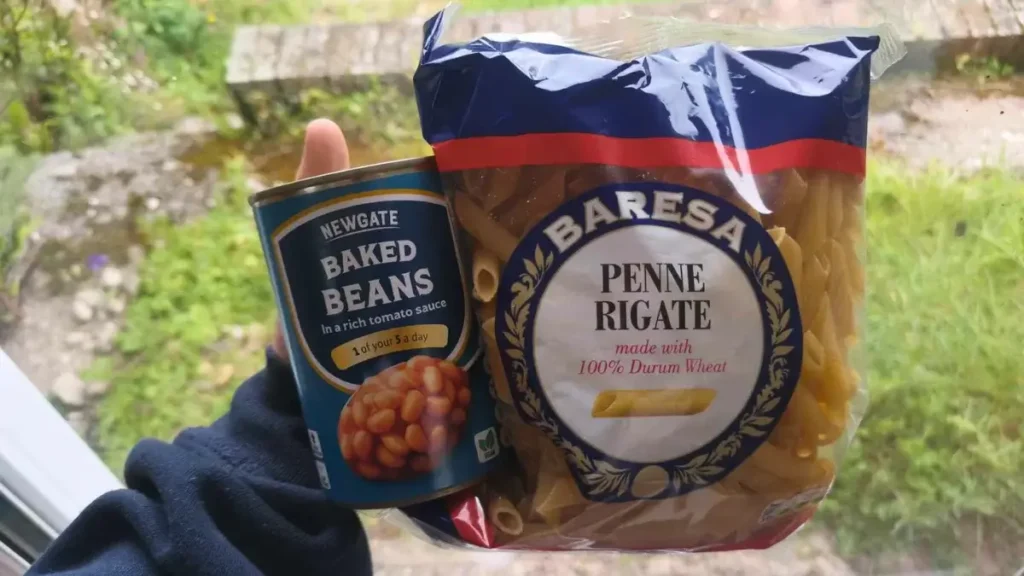

Alternative Night Before a Half Marathon Meals
Now I understand that baked beans aren’t for everyone, especially as it’s quite an English thing so maybe not for my American readers. I’ve put together a list of other alternatives below from different cuisines around the world so you can find a meal that fits with your taste buds:
How to Work out Which Meal Works for You
The key is to listen to your body. Try and experiment with different pre-race meals during your longer training runs in the weeks running up to your half marathon. Plan out the different options you are going to try and record how you feel when you wake up and during the run.
For example, I once had a massive omelet the night before a half marathon thinking it would be perfect for me as a running friend had recommended eggs. I later found out the high levels of protein and fat didn’t agree with my stomach, it was an incredibly uncomfortable run and I had to retire halfway around to go to the bathroom.
Although this wasn’t very fun, it was a great learning experience. So I can’t recommend enough how important it is to try lots of different things and see which is right for you.
Don’t Forget Hydration
Don’t forget about the other side of the coin, you also want to be ‘hydration loading’ 48-72 hours before your half marathon as well.
You want to ensure you drink plenty of water during this period with small frequent sips rather than large gulps (to prevent feeling bloated), even if you don’t feel particularly thirsty. This will help with digestion and ensure you are hydrated for your race.
You can tell how hydrated you are by monitoring your urine color, pale yellow to clear indicates adequate hydration levels. Try to avoid alcohol entirely, and excessive caffeine as this can contribute to dehydration (although some runners like to have a bit of caffeine before a race which is fine).
You also want to load up on electrolytes, so the day before and the morning of your half marathon, try to consume three to four 500ml electrolyte-rich beverages like a Lucazade sports drink to replenish electrolytes lost through sweat.
My Top Tip
Although I’ve gone into a lot of detail here, my top tip would be to try not to overthink it. You probably know off the top of your head what foods make you feel good and which ones don’t. In my opinion, making sure you are in a good mental headspace for your half marathon is more important than getting that extra 10g of carbohydrates in at the exact right time.
Following the above will improve your experience and performance, but don’t let being meticulous about your food intake take away from the experience or cause you unwanted stress.
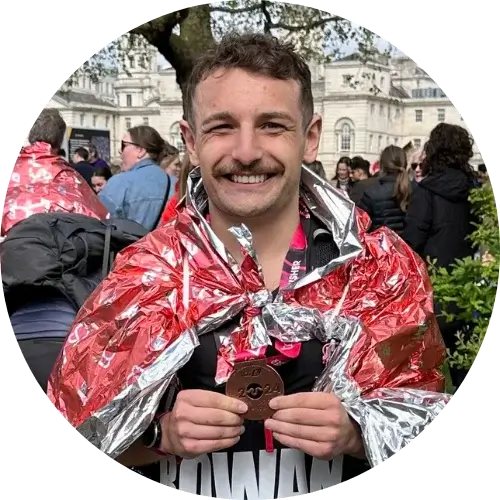

Row Brown is the founder of Refresh Row. He is a keen marathon runner, his favorite being the London Marathon. He’s now set himself the mission of Running the Entire Length of Spain, which is scheduled for late 2024.

